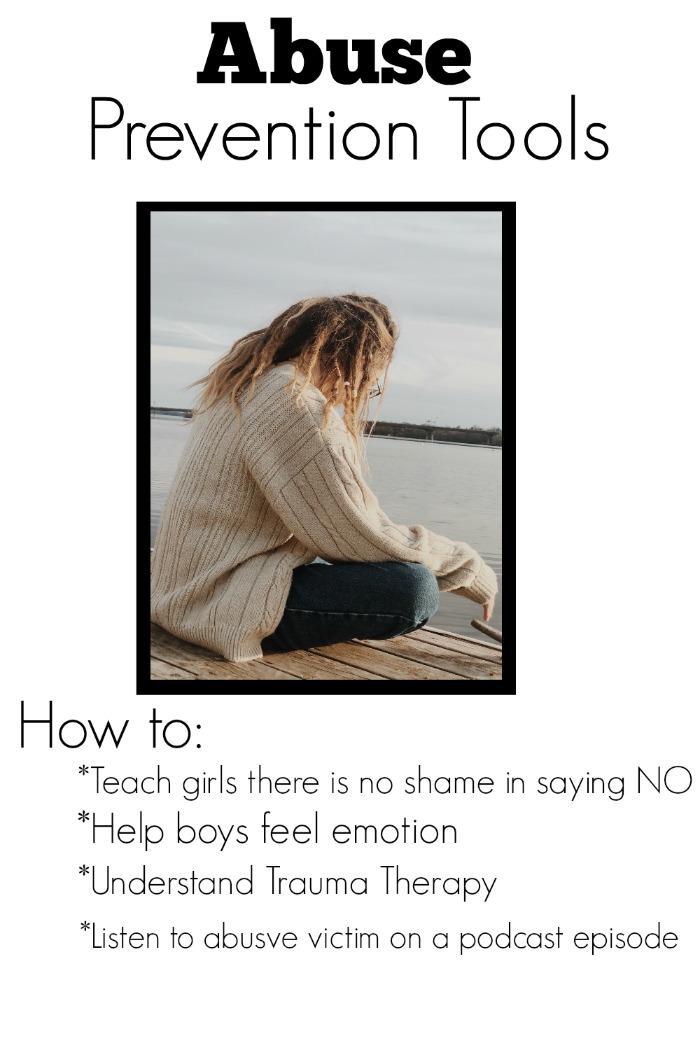Helping our teens with Setting boundaries about what they are ok with in a dating relationship is important. Continue reading for abuse prevention tips and conversation starters.

There’s NO shame in saying NO
What do you tell your girls if they are asked out by a boy they don’t want to go out with? Be nice and go out with him, that must have been hard? Maybe. Most importantly, we need to teach our girls about setting boundaries for themselves, to listen to their intuition, and if they don’t want to go on a date with someone, they don’t have to answer to anyone, there is no shame in saying no. In this weeks podcast episode, I spoke to Madeliene about a teen relationship where she felt manipulated, and later identified as sexual abuse.
You can listen to that podcast episode right here by pressing play, or your favorite podcast platform.
You can also encourage your teen friends to listen to the corresponding teen episode here:
Trauma Therapy
In our discussion, Madeliene also shared with me the trauma therapy that she received called EMDR. It’s a “no talk” therapy treatment that helps clean the wound of trauma, and not just putting a bandaid over it. It’s a process of healing that allows you to be able to move on from past trauma. She said it felt like magic in her life, and highly recommends it.

Setting Boundaries with abuse prevention
I found a really great resource with discussion topics about abuse prevention that we can discuss with our kids. I encourage you to check out this site, and link, and more importantly it’s where you can download the printable that is great for a discussion. It shares these pointers:
- Use concrete examples
- Model healthy boundaries
- talk about touch
- Explain about tricks
- Involve other adults
- Be approachable
>>>Download the printable here (see the right sidebar): Printable for talking to kids
Discuss emotions with boys
Another topic we brought up in our Instagram discussion this week was the importance of helping our boys understand their own emotions. For so many years, it seemed they were told to “not be a crybaby” or “don’t play like a girl” etc. that research shows that they overcompensate their masculinity trying to prove it with abusive behavior. As a by product, they can also become less empathetic to girls and their feelings of “no” because they themselves have learned to hide their emotions.
>>>Read more about that article here: Helping our boys with emotions




